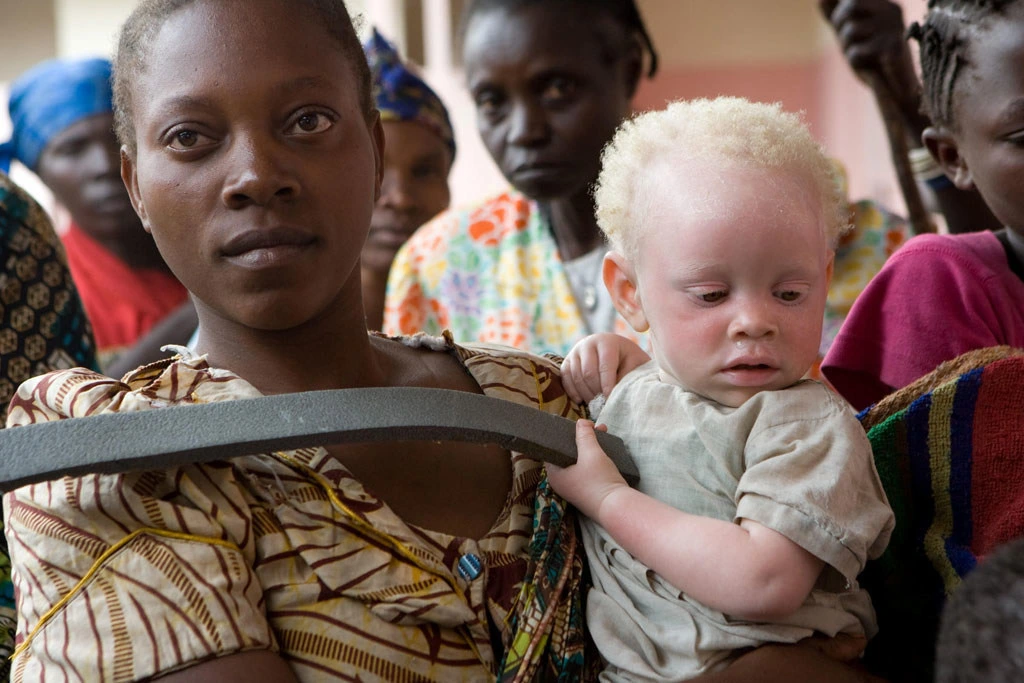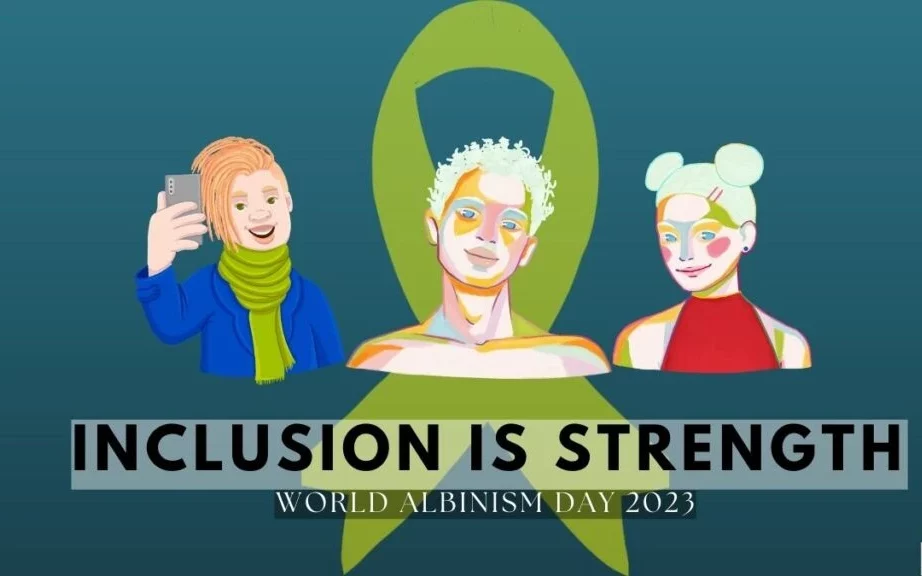Albinism is a rare, non-contagious, genetically inherited difference present at birth. In almost all types of albinism, both parents must carry the gene for it to be passed on, even if they do not have albinism themselves.
The condition is found in both sexes regardless of ethnicity and in all countries of the world. Albinism results in a lack of pigmentation (melanin) in the hair, skin and eyes, causing vulnerability to the sun and bright light. As a result, almost all people with albinism are visually impaired and are prone to developing skin cancer. There is no cure for the absence of melanin that is central to albinism.

Read Also : Celebrating Africa Day: A Continent of Pride, Progress, and Potential
As today is world albinism day. We can celebrate people with albinism through ensuring we include them in public spaces. These spaces may include government positions if they are qualified. With this in action, other people with albinism may be able to apply for these platforms and be included.

Another way we can celebrate people with albinism is through creating peer groups. This may include discussions and talks of challenges they go through.
Subscribe to Switch TV for more content.
In addition, according to United Nations report, this year’s theme also highlights other ways of celebrating people with albinism. Some of these, highlights are:
- Including a broad spectrum of persons with albinism in albinism-related discussions, including youth, women, children, older persons, LGBTQ+ and persons with albinism of all races and ethnic backgrounds;
- Collaborating and embracing albinism within the disability movement, and in other sectors where decisions affect persons with albinism; and
- Seeking synergies with human rights groups and other groups from outside the albinism movement.















